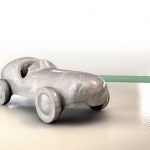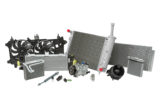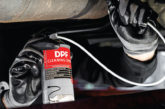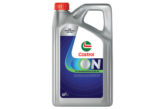The UK aftermarket is one of the most competitive and vibrant in Europe but, as Neil Pattemore explains, it is now under serious threat.
In today’s aftermarket a wide variety of VMs provide a multiplicity of choice of vehicle models and types. Subsequently, consumers have numerous options as to how these vehicles are serviced, maintained
and repaired by both the VM’s main dealer network or in independent workshops. This choice becomes increasingly important as the vehicle ages and the cost of repair becomes an ever-increasing proportion of the ever decreasing value of the vehicle.
However, although this market sector provides the consumer with a fantastic array of alternatives of where to get their vehicle serviced and repaired, with a selection of parts, repair methods and competitive prices, how this choice is made possible is now under threat.
Vehicle servicing and repair has changed considerably over the years. If we go back to a time when vehicles were almost wholly mechanical, it was the local village blacksmith who first started to repair early automobiles (or ‘horseless carriages’, as they were known). As the market volumes grew, specialist
repairers became commonplace – the start of the garage network as we know it today.
When electronics became increasingly important, it was also obvious that the technical information needed to work on these more modern vehicles had become an integral part of being able to diagnose, service and repair them. This technical information, however, resided only with the VM.
As the VM wanted to retain as much business as possible in its main dealer network (to protect the network and to sell more high margin spare parts), this technical information wasn’t freely available to
independent operators. This increasing restriction and ‘market dominant’ position was raised by the industry’s trade associations with the legislators, who recognised that regulation was needed.
Open to abuse
Initially, after much hard-fought discussion, this was achieved as part of the ‘Block Exemption Regulation’ (BER), but although this was well-intended, it was open to interpretation and abuse. It helped a lot, but didn’t provide all the answers needed. It is also based on the Treaty of Rome competition rules, which meant that any challenge for noncompliance could only be made after the
event via the courts – not an easy thing for a small independent workshop to do.
So the situation was further argued in Brussels and the European Commission used the (then new) Euro 5 legislation to introduce clearer and more robust requirements that obliged VMs to provide ‘bumper to bumper’ repair and maintenance information (RMI) to independent operators in a ‘nondiscriminatory’
manner, in comparison to their main dealer network. This RMI must be made available through a standardised ‘Euro 5’ website.
This ensured that true consumer choice was maintained and that innovative (i.e. more cost-effective) repair methods and spare parts were available in the aftermarket. Independent operators remained independent in both their business operations and in their choice of diagnostic tools, replacement parts
and support services.
Today this situation is under significant threat as the VMs introduce remote communication with the vehicle (telematics) and, in doing so, restrict all communication connections to ensure ‘security, safety and liability issues’.
The beloved 16 pin connector is restricted to emissions data only (as allowed by legislation) and all other in vehicle information will be controlled via pre-certificated/preverified access conditions, where the VM will impose B2B contracts for these new chargeable access services.
Importantly, the repair processes and data will also be those used by the VM, who will know who, when, where and what is being done to ‘its’ vehicles. So much for the ‘non-discrimination’ amongst vehicle repairers and the independence, innovation and competitive ness of the aftermarket!
In my view independent workshops could become mere ‘puppets’ of the VMs, with less choice allied to higher operating costs. Furthermore, with the increasing volumes of electric vehicles, driver aid systems and autonomous vehicles, better trained, equipped and certificated businesses and technicians are likely to become the‘order of the day’.
Only new legislation can ensure that today’s ‘fair and level playing field’ continues, bu t against the background of ‘security, safety and liability’ issues being pedalled by the VMs, it needs a coordinated
effort from the aftermarket to bring this to the attention of both the UK and European legislators to ensure that this ‘market dominant’ position being created by the VMs through technical design is not allowed to prevail. Only if ‘united we stand’ can the aftermarket avoid a VM monopoly of the entire industry sector.










